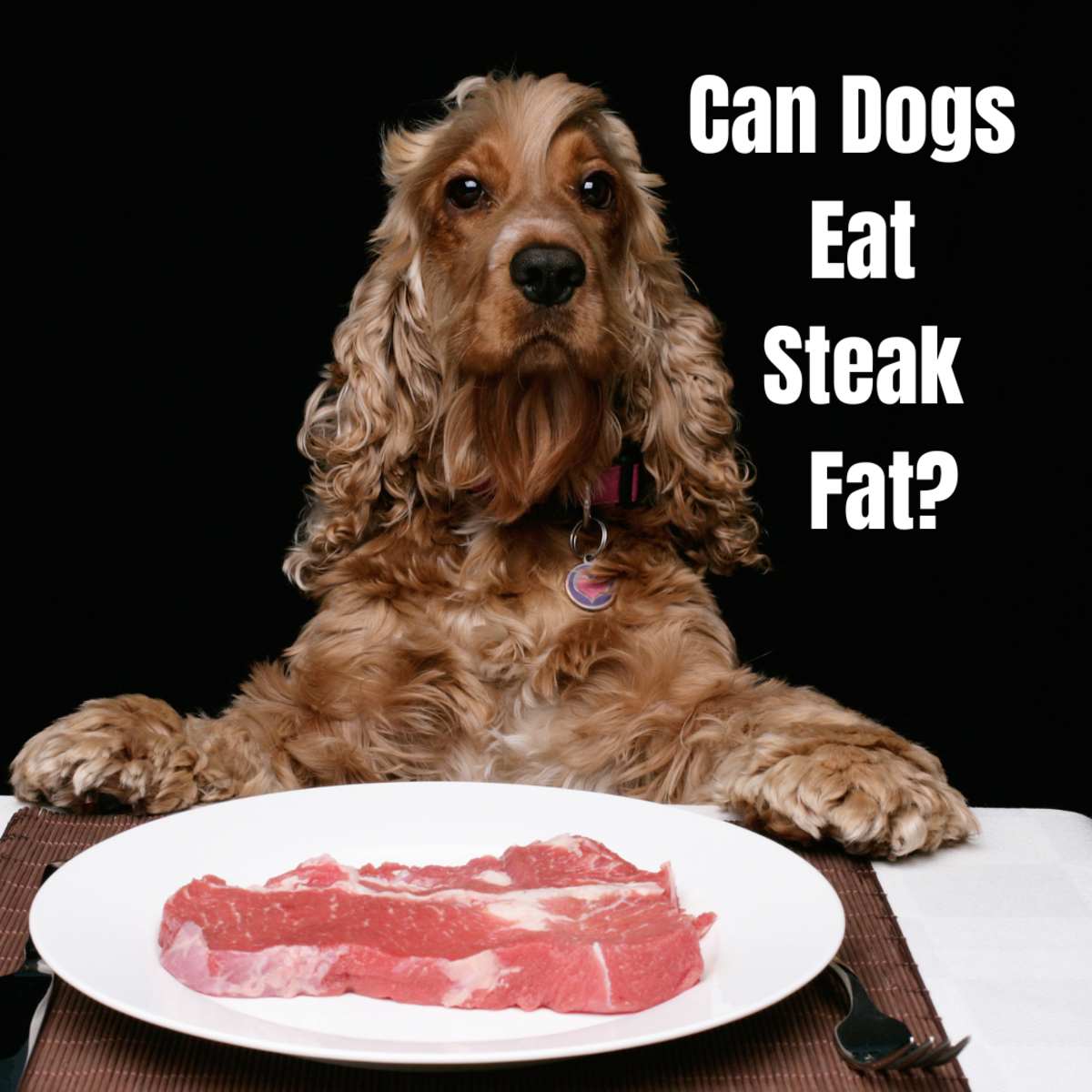Should You Buy Dog Food for All Life Stages?

Should we feed dog food for all life stages? As we walk through the pet store aisles filled with a variety of dog foods, it's quite normal to feel overwhelmed by the choices. Foods for puppies, foods for senior dogs, foods for adult dogs, foods for athletic dogs, foods for obese dogs and foods for lactating dogs. Then, right at the end of the aisle, you notice a bag of food advertised for all life stages. Well, that sure makes it a no-brainer, why not just buy that and keep the dog on that food for the remaining of his life? The company sure must have thought about busy people like you who are looking for an easy solution and like straightforward solutions to overwhelming choices. In the name of convenience, you therefore purchase that food and are happy about the idea of sticking with it for a very long time. However, it may never cross your mind if that is really a good choice. After all, if the company makes it and has been around for many years, and people haven't been complaining, so there shouldn't be no harm in feeding it, right?
Well, at times what seems convenient to us has some drawbacks we may not be aware of. It's in the best interest of our pets to question products, keep-up-to-date with recalls, figure out what foods are best for them and the best practices to keep our dogs healthy. Things though aren't that easy and it's difficult to keep up. Depending on who you ask, you may always receive different answers. And the store clerk of course will swear by that food and tell you how shiny and odorless it keeps his dogs' coats.
Disclaimer: As with my many other articles tackling dog nutrition, it's important to point out that this article is not a substitute for professional nutritional advice, but it's simply the result of my research conducted on the topic. I try my best to find reputable sources to rely on, and provide links to my resources so all the information provided can be verified. Just because certain websites recommend certain approaches to dog nutrition, doesn't necessarily mean they will prove to be a Godsend for your dog. If you are looking for advice and recommendations as to what is the best diet for your dog, your best bet is to consult with a dog nutrition expert who will work on creating a dietary plan custom-tailored for your dog.
Written by Nutrition Experts
All Life Stages Diet for Dogs Under Scrutiny
So does it make sense to feed dogs an all life-stage diet for the rest of their lives? From a standpoint of convenience, yes, as this will spare you from switching foods every time your dog goes through life changes. Most of all, if you have a multi-dog household with dogs of different ages, it may save your from purchasing different foods. But if we look at this one-size-fits-all approach we may notice some big disadvantages. Despite the fact that The Association of American Feed Control Officials (AAFCO) authorizes the labeling for all life stages and as long as they meet the stringent guidelines for “growth and reproduction," it's important to realize some important aspects.
One big fact is that the nutritional requirements of dogs change as they go through life changes. This is why you see many diets for dog growth, dog maintenance, dog reproduction, dog seniority. The companies manufacturing these diets produce them with the dog's changing nutritional needs at different stages in mind. To delve deeper into the topic, let's take a look at how nutritional needs vary from one life stage to another.
Diets for Growth
Young dogs have unique nutritional needs as they are in the process of generating new tissue. Those bones must be built, and muscles, nerves and vessels increase to create more body mass. Nutritional needs further vary depending if you own a large dog breed or a small one. Large dogs, in particular, have specific nutritional requirements to prevent orthopedic problems such as hip dysplasia, osteochondrosis, panosteitis and hypertrophic osteodystrophy as they develop. They need high concentrations of nutrients, but without ingesting excessive calories. Staying lean is important for the prevention of orthopedic issues.
Attention in particular must be given in limiting calcium intake which, according to Pets Diets, a website by Dr. Rebecca L. Remillard, a veterinary nutritionist, must be limited to 1% of the diet dry matter. Puppies have different requirements in calcium and phosphorus needs compared to adult dogs, further explains veterinary nutritionist Jennifer Larsen. Large -breed growth diets must be formulated in a way to limit the amount of calories and calcium content. Excessive calories in a large breed puppy may cause rapid growth which leads to bones that cannot keep up with increased body mass.
On the other hand, the problem with calcium is that puppies, unlike adult dogs, cannot regulate how much calcium is absorbed in their intestinal tract for their first 6 months of life. Unlike adult dogs, puppies have minimal regulation over intestinal calcium absorption for their first 6 months of life. This may lead to excessive absorption of calcium, despite the fact that it exceeds physiologic needs, explains veterinary nutritionist Cailin R. Heinze. Supplementation of calcium, phosphorus, and vitamin D in addition to feeding a complete and balanced diet designed for growth is rarely needed and may even be contraindicated.
In addition, some of these growth diets for large breeds may be supplemented with glucosamine, omega-3 fatty acids, and chondroitin for added orthopedic benefits, adds Cailin R. Heinze. So these growth diets are very helpful and appropriate for large breed growing puppies. It's important to also consider differing nutritional needs between large breed dogs and small breed dogs. For instance, according to Merck Veterinary Manual large- and giant-breed puppies require complete, balanced diets that contain calcium, fat, and protein at levels closer to the minimums stated by AAFCO; whereas, small-breed puppies, which may need to be fed more than three times a day require a diet containing calcium, fat, and protein at levels greater than the minimums stated by AAFCO.
For how long are these growth diets fed for? Generally, until the puppy reaches approximately 80%- 90% of his anticipated adult size, which occurs around 12 months in small to medium-sized dogs, and around 18 to 24 months in the large to giant-sized dogs.
Maintenance Diet
Adult dogs are often fed maintenance adult diets meant to meet the nutritional needs of the average adult dog. These diets are less nutrient dense than those for growth. The goal is to maintain optimal body weight and condition. However, not all maintenance diets are appropriate for all adult dogs and may provide more nutrients and calories than needed. For instance, adult intact dogs that are not spayed or neutered, have higher energy requirements compared to a dog that is neutered or spayed. This explains why dogs who are spayed and neutered have a tendency to increase in weight after being put on a maintenance diet and being offered limited opportunities for exercise. According to Clinical Nutritionist Meg Smart, "A maintenance ration will meet the needs of an adult, non-reproducing dog or cat of normal activity, but may not be sufficient for a growing, reproducing, or hard-working animal. "
Gestation Diet
Female dogs who are pregnant require a 10 to 20 percent increase in nutrients as they reach the last 20 days of pregnancy. Nutritional needs further vary as mother dog starts nursing, as her caloric intake and need for energy will increase 2 to 8 times depending on how many pups she needs to nurse. A big mistake is overfeeding during mother dog's early gestation and underfeeding during lactation, at time when she will need 2 to 4 times more energy levels than those of maintenance, explains the Merck Veterinary Manual.
Active Diet
Dogs who lead active lives will have higher energy requirements compared to the average pet who walks once or twice a day and then lounges on the couch for the rest of the time. Working dogs or athlete dogs require about 2 to 8 times more energy than the average dog kept mainly as a pet for companionship.There the caloric needs of these dogs exceed those of dogs on a maintenance diet. Diets for working dogs, or even stressed dogs, should therefore contain increased levels of fat and nutrients, explains the Merck Veterinary Manual.
Geriatric Diet
This a diet for senior dogs. Many pet food stores recommend senior diets when a dog reaches 7 years of age, but that's not appropriate for all dogs. Depending on your dog's size and breed, he may be considered senior at a different age. The nutritional needs of senior dogs tend to vary from one to another because they may be afflicted by different conditions requiring different dietary approaches. In addition, according to Merck Veterinary Manual older dogs become less efficient in metabolizing protein compared to when they were younger. This means that they may need increased dietary protein so to maintain their protein reserves. Best to consult with a veterinary nutritionist for the best diet for a senior dog.
As seen, there are several other factors to keep in mind when searching for the best diet for your dog. For instance, dogs kept outdoors year round, will necessitate more energy in the winter to maintain their normal body temperatures. Other factors involved, other than life stage, include body condition, reproductive status, emotional state, exercise, health status and environment.
So should you feed an all life stage food? Despite the fact that The Association of American Feed Control Officials (AAFCO) authorizes the labeling for all life stages, we must consider the nutritional needs of dogs in different stages of their lives. According to the Merck Veterinary Manual:" Dietary modifications are required by changes in life stage, environment, body weight and condition, and disease." And to be even more precise, " feeding recommendations should be individualized." Dr. Rebecca L. Remillard, in regards to "All Life Stages" foods further adds "These products carry the AAFCO statement “for all lifestages”. We do not believe this is the best way to feed pets just as one shoe size does not fit all people."
If you are looking for the best diet for your dog, your best bet is to consult with a board-certified veterinary nutritionist (DACVN). Feeding recommendations should be individualized by considering several factors. Finding the ideal diet takes some homework, and your veterinary nutritionist will look at many factors before deciding what diet is the best for your dog.
Alexadry© all rights reserved, do not copy.
For further reading
- How to Find a Dog Nutrition Expert?
If you are looking for advice on dog nutrition you may be confused and not know where to start. To make things even more difficult, there are people posing as dog nutrition experts when they are not. - Dog Aggression: The Role of Nutrition
Nutrition can have significant effects on your dog's behavior. Learn what foods have been researched to cause some dogs to react negatively, and which foods you may want to add to your dog's dish. - Puppy Exercise Limits: How Much is Too Much?
While puppies are quite rambunctious balls of energy, they need limits when it comes to exercise. Learn how too much vigorous exercise may prove harmful to their development. - Dog Foods Without Chicken Byproducts
If you're looking for a dog food with no chicken byproducts, you're at the right place. Learn what chicken by-products are and which dog foods are without chicken or poultry by products. - Dog Health: Understanding Pancreatitis in Dogs
What is canine pancreatitis? Why does the dog's pancreas get inflamed? What are treatments for pancreatitis in dogs? Learn more about this debilitating condition. - Dog Food Intolerance Symptoms and Signs
Does your dog suffer from a food intolerance or a food allergy? Both these conditions are often confused. Learn more about a revolutionary test to help you identify the offending ingredient.









